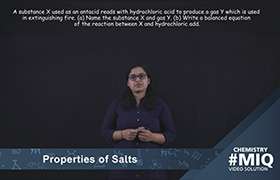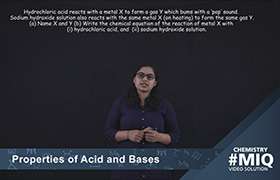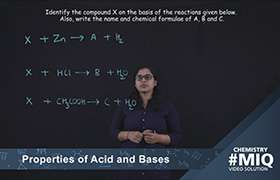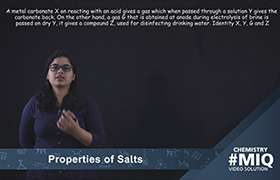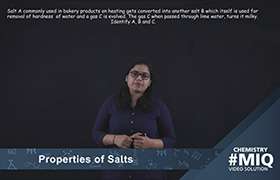CBSE Class 10 Answered
what is meant by chlor alkai process?
Asked by | 23 Jun, 2008, 08:02: PM
A chloralkali process always implies the electrolysis of common salt or sodium chloride. Depending on the method several products beside hydrogen can be produced. If the products are separated chlorine and sodium hydroxide are the products while by mixing sodium hypochlorite or sodium chlorate are produced depending on the temperature. Higher temperatures are needed for the production of sodium chlorate instead of sodium hypochlorite. Industrial scale production began in 1892.
Using calcium chloride and potassium chloride the products contain calcium or potassium instead of sodium.
The process has a high energy consumption, for example over 4 billion kWh per year in West Germany 1985, and produces equal (molar) amounts of chlorine and sodium hydroxide, which makes it necessary to find a use for the product with less request, usually the chlorine.
Answered by | 09 Jul, 2008, 02:22: PM
Application Videos
Concept Videos
CBSE 10 - Chemistry
Asked by kamalapallysudha17 | 25 Mar, 2024, 07:52: PM
CBSE 10 - Chemistry
Asked by amanazeez6 | 14 Dec, 2023, 01:10: PM
CBSE 10 - Chemistry
Asked by p6917110 | 29 Oct, 2023, 09:06: AM
CBSE 10 - Chemistry
Asked by namyabachhal | 16 Oct, 2023, 10:17: PM
CBSE 10 - Chemistry
Asked by aggrwalmontek | 14 Sep, 2023, 10:43: PM
CBSE 10 - Chemistry
Asked by ssyedbasha49 | 16 Jan, 2023, 02:17: PM
CBSE 10 - Chemistry
Asked by murugan3 | 25 Dec, 2022, 06:12: AM
CBSE 10 - Chemistry
Asked by manisha.5154 | 15 Jun, 2022, 02:52: PM
CBSE 10 - Chemistry
Asked by ranishoba947 | 10 May, 2022, 09:04: PM

